Due to their nutritious richness, kiwi and other fruits are healthy. Kiwis provide vitamin C, antioxidants, and fiber. Antioxidants, such as vitamin C, choline, lutein, and zeaxanthin, eliminate free radicals from the body. Free radicals are unstable chemicals produced by the body during metabolism.
Free radicals may induce oxidative stress, which can harm cells. This may cause heart problems or cancer. Antioxidants rid the body of free radicals. The nutrients in kiwi may have the following benefits.
Vitamin C helps produce collagen, a crucial component in cells, organs, and the skin. Vitamin C helps the body repair wounds. A 2019 research indicated that collagen supplements may increase skin suppleness, hydration, and wrinkle reduction. Vitamin C pills aren’t the same as eating kiwis, but the fruit may help keep skin healthy.
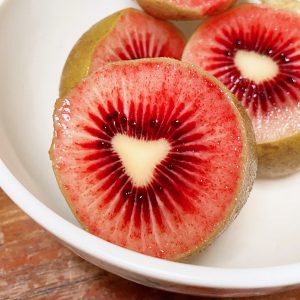
one 69g kiwi (g)
Trusted Source has 64mg of vitamin C. This is 71–85% of an adult’s daily vitamin C needs a Good Source. kiwifruit has vitamin E or tocopherol. The antioxidant properties of vitamin E and its capacity to protect skin from sun exposure may prevent skin problems. Explore skin-friendly foods.
Good sleep
A 2011 research examined the impact of kiwifruit on persons with sleep issues. Researchers discovered eating kiwis enhanced self-reported sleep. The antioxidants and serotonin in kiwis may be responsible for this advantage, say experts.
BP and heart health
Kiwis’ fiber, potassium, and antioxidants may help the heart. The American Heart Association (AHA) advises consuming more potassium and less sodium. Potassium relaxes blood arteries, lowering blood pressure and reducing the risk of heart disease. One kiwi has 215 milligrams of potassium or 5% of an adult’s daily need. The fiber in kiwis may enhance cardiovascular health. A 2017 research indicated that fiber reduces the risk of cardiovascular disease. Also, they have less “bad” cholesterol.
IS RED KIWI FRUIT GENETICALLY MODIFIED
Plant and Food Research is pleased to announce that farmers of Zespri kiwifruit will soon have access to a new red kiwifruit cultivar that was developed as part of the New Zealand kiwifruit breeding project.
Zespri® Red Kiwifruit is the first red-fleshed cultivar to be commercially produced from the breeding program, which is a collaboration between Plant & Food Research and Zespri. The breeding effort was started in 2002.
The program has previously released several cultivars, such as ‘Hort16A,’ which was the first yellow-fleshed kiwifruit cultivar and was marketed as Zespri® Gold Kiwifruit; and ‘Zesy002,’ which was known as Gold3 and was marketed as Zespri® SunGold Kiwifruit. Both of these cultivars were marketed under the Zespri® brand name.
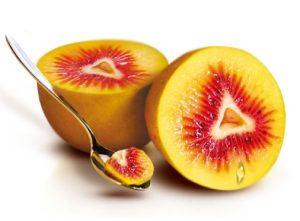
The red variety was produced as a consequence of a natural breeding cross that took place in the year 2007. The first fruits to come from this cultivar were harvested in 2009, and they were found to possess exceptional qualities necessary for successful commercialization. These qualities included a deep red coloration in the middle, a sweet flavor, and a nice texture.
According to Dr. Zac Hanley, who serves as the General Manager of Science New Cultivar Innovation at Plant & Food Research, “It is always thrilling for our breeding team when a new cultivar is introduced to commercial producers.” “The introduction of a cultivar is the product of around 15 years of study across a number of scientific fields,” including “the breeders who launched the initial cross,” “the teams that examined the best technique to cultivate the plants and harvest and preserve the fruit,” and “the sensory experts who assessed if the fruit matches consumer expectations.”
RED KIWI PRICE
“Guizhou’s kiwi fruit farming regions were hit by hail and severe rain earlier this season. The pollination rate is poor this year, and in certain producing locations, fruit dropped off the trees. However, the second half of the season was flawless. The merchandise quality is amazing.” This is according to Duan of Liangdu Miniho.
The harvest season for red heart kiwi fruit in Guizhou started on July 25 and ended on September 15. “Our output volume surpassed 8 thousand tons this year. It’s about the same as in the same time last year. We’ve sold close to 6 thousand tons. That’s rough twice the sales volume from the previous year. We’re aiming to slow down our sales.
We want to keep our items fresh till February next year because of another strong sales time around Chinese New Year [25 January 2020] “Duan, manager. “As for pricing, we change it every year based on local market demand. The price of red heart kiwi fruit from Guizhou producing regions remains constant this year. The current market price is 18 yuan [2.56 USD] for 0.5 kilograms.”
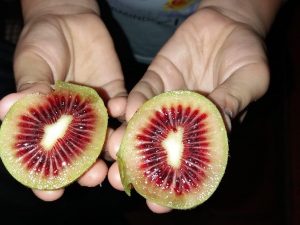
The red heart kiwi fruit type can only be kept fresh for a limited time, which complicates storage and distribution and hurts competitiveness with other kiwi fruit species. “We keep our kiwi fruit in superior air-conditioned facilities to ensure the finest quality and taste. We deliver our kiwi fruit in refrigerated vehicles that maintain the fruit between 2 and 6 degrees Celsius. In air-conditioned warehouses, we can keep kiwi fruit fresh for roughly 8 months “Duan, manager.
Three years ago, Minho began employing New Zealand-imported Compac systems. The installation takes images of the fruit, chooses and weighs it, and measures its moisture and sugar content. The Compac plants can process 200 tons per day. “The automated systems help us decrease labor costs and increase fruit selection and packing efficiency. This helps us ensure improved product quality.”
RED KIWI NUTRITION
The nutritional profile of kiwis is exceptional. Here is the nutritional breakdown for a 3.5-ounce (100-gram) portion of raw, green kiwi flesh, according to a reliable source:
- Calories: 64 Carbs: 14 grams
- Fiber: 3 grams
- Fat: 0.44 grams
- Protein: 1 gram
- Vitamin C: 83 percent of Daily Value (DV)
- 9 % of the Daily Value for Vitamin E
- 34 % of the DV for vitamin K
- 0% of the Daily Value for Folate
- 15 % of the DV for copper
- 0% of the DV for potassium
- 4% of the Daily Value of magnesium
- 5 ounces (100 grams) of kiwis provide more than 80 percent of the typical daily vitamin C requirements.
Vitamin C serves as an effective antioxidant in the body, protecting cells from oxidative damage. It also has a role in immunological function and is necessary for the production of collagen and neurotransmitters in the body (5Trusted Source).
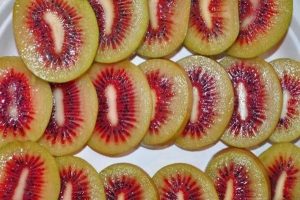
Moreover, kiwis include potassium, copper, vitamin K, folate, and vitamin E, a fat-soluble nutrient with antioxidant properties and a crucial function in maintaining immunological health (6Trusted Source). In addition to being low in calories, protein, and fat, kiwis are also a wonderful source of fiber.
When kiwifruits are sliced, they release an enzyme (specific to kiwifruits) that softens other meals as well as themselves; hence, they should be cut and served as late as possible. Intriguingly, the same actinidin enzyme has been proven to aid in protein digestion in the human digestive system. Try kiwis the next time you’re feeling bloated after a meat-heavy dinner, or if you’re looking for a natural meat tenderizer.
RED KIWI CALORIES
You may already be aware that red kiwi fruit has a lot of vitamin C, but that’s not all it has going for it when it comes to its nutritional profile. This low-calorie fruit has just 61 calories per 100 grams and may give you many of the essential elements that are recommended daily allowances. The following is a breakdown of the nutritional content of one hundred grams of raw red kiwi fruit:
- 61 calories
- 5 g fat
- 3 mg sodium
- 15 g carbs
- 9 g sugar
- 3g dietary fiber
- 1g protein
Vitamin C, which is sometimes referred to as ascorbic acid, plays an important role in the development and repair of bodily tissues in addition to providing support for the immune system. In addition to vitamin C, red kiwis have a respectable amount of vitamin K in their composition.
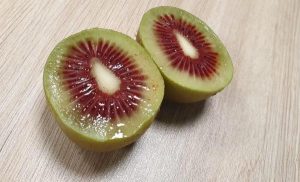
Vitamin K is a fat-soluble vitamin that plays an important role in the regulation of blood clotting, metabolism, and calcium levels in the blood. The quantity of vitamin K found in one cup of red kiwi is astounding, coming in at 40 mcg. This is particularly remarkable given that kiwi is classified as a fruit.
Copper is a nutrient that, in addition to assisting in the absorption of iron, promotes healthy bones, neurons, and immunological function. It also plays a role in the formation of red blood cells by combining its properties with those of iron.
The consumption of red kiwis will provide you with 14 percent of the daily value for the mineral copper, which is present in abundance in these fruits. Additionally, red kiwis have a respectable quantity of folate, potassium, and fiber in their composition.
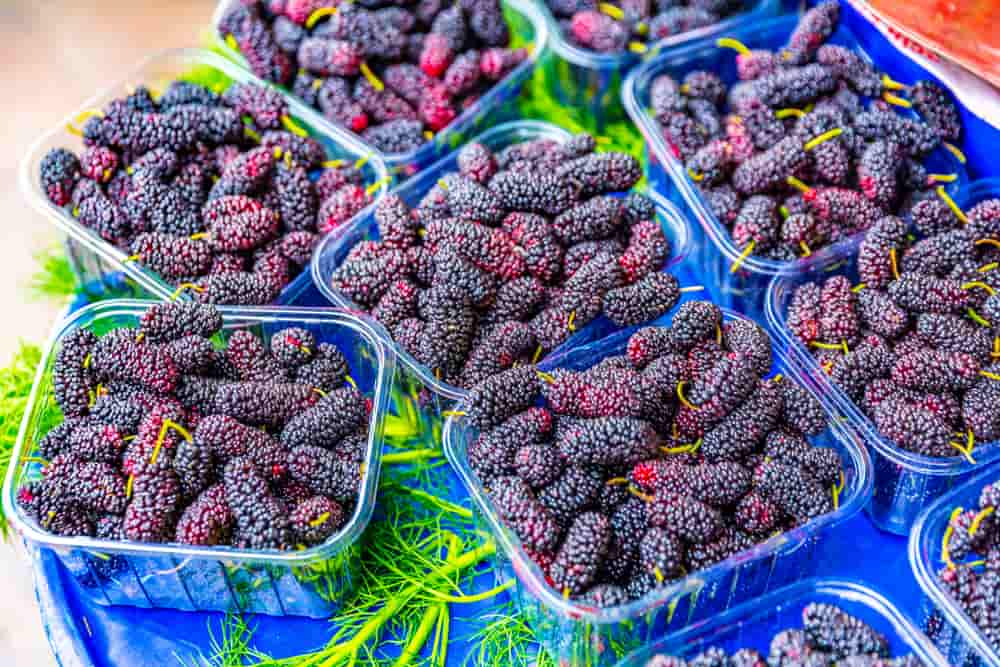
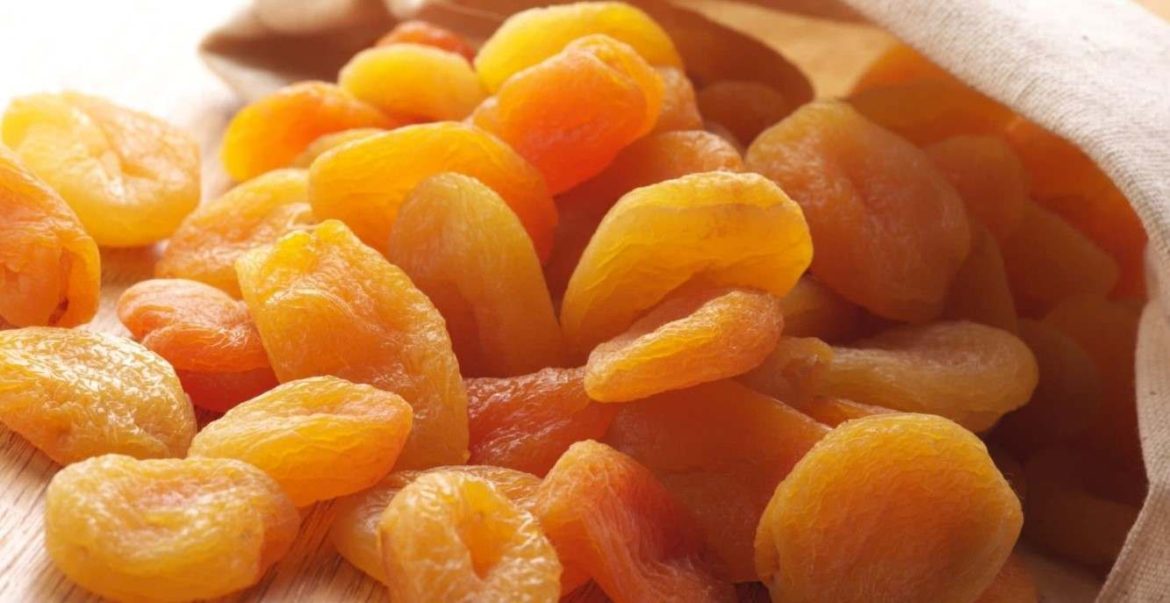
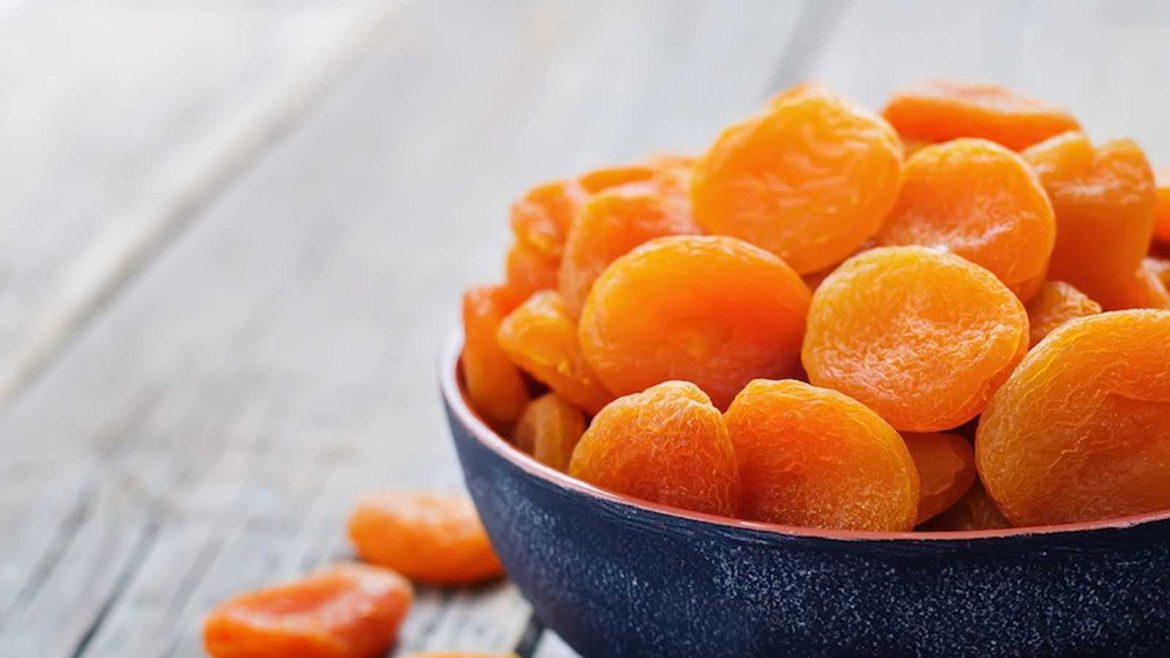
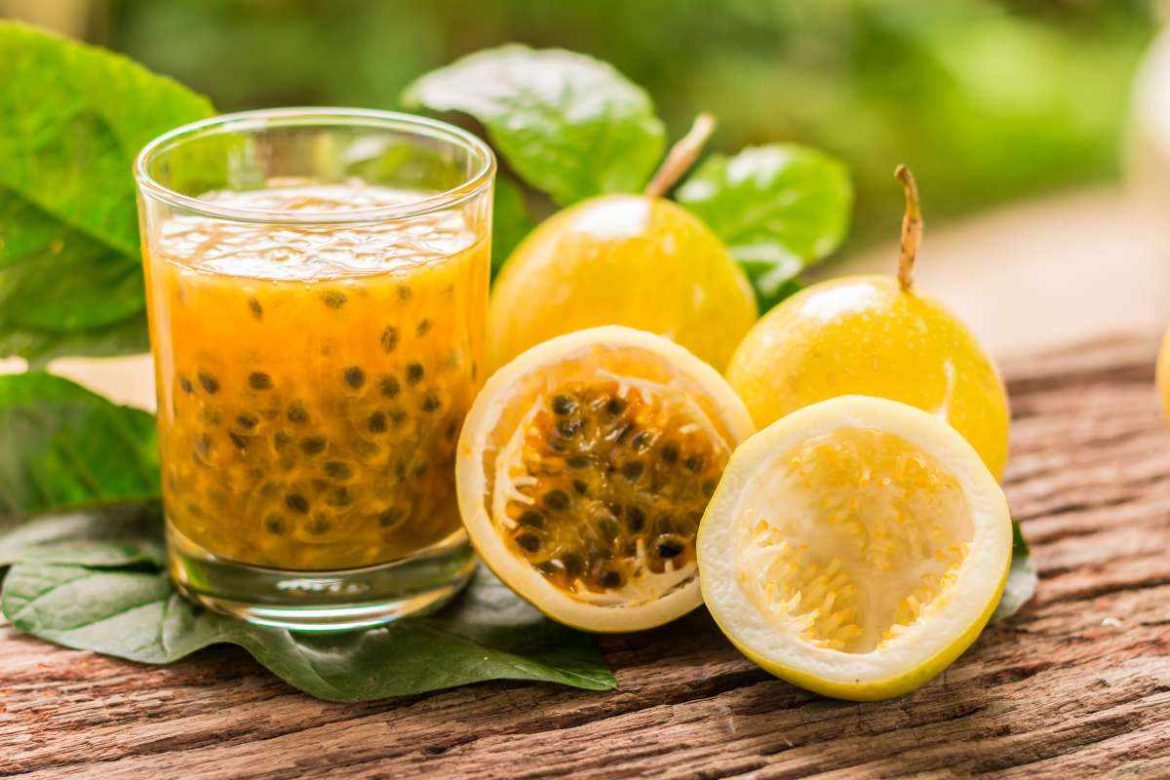
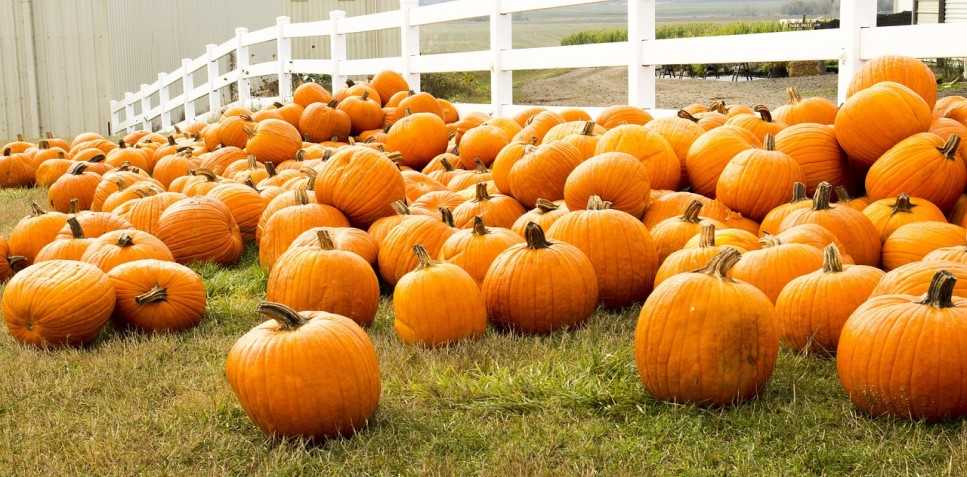
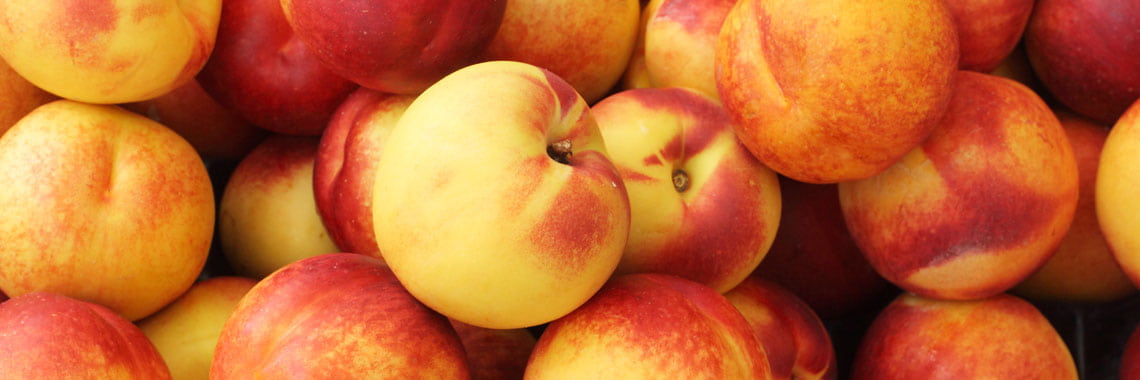
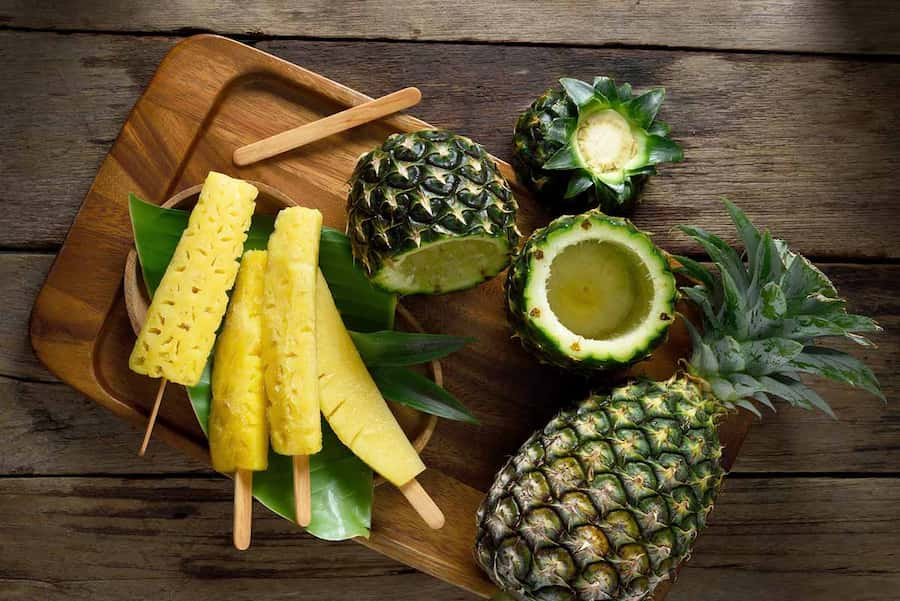
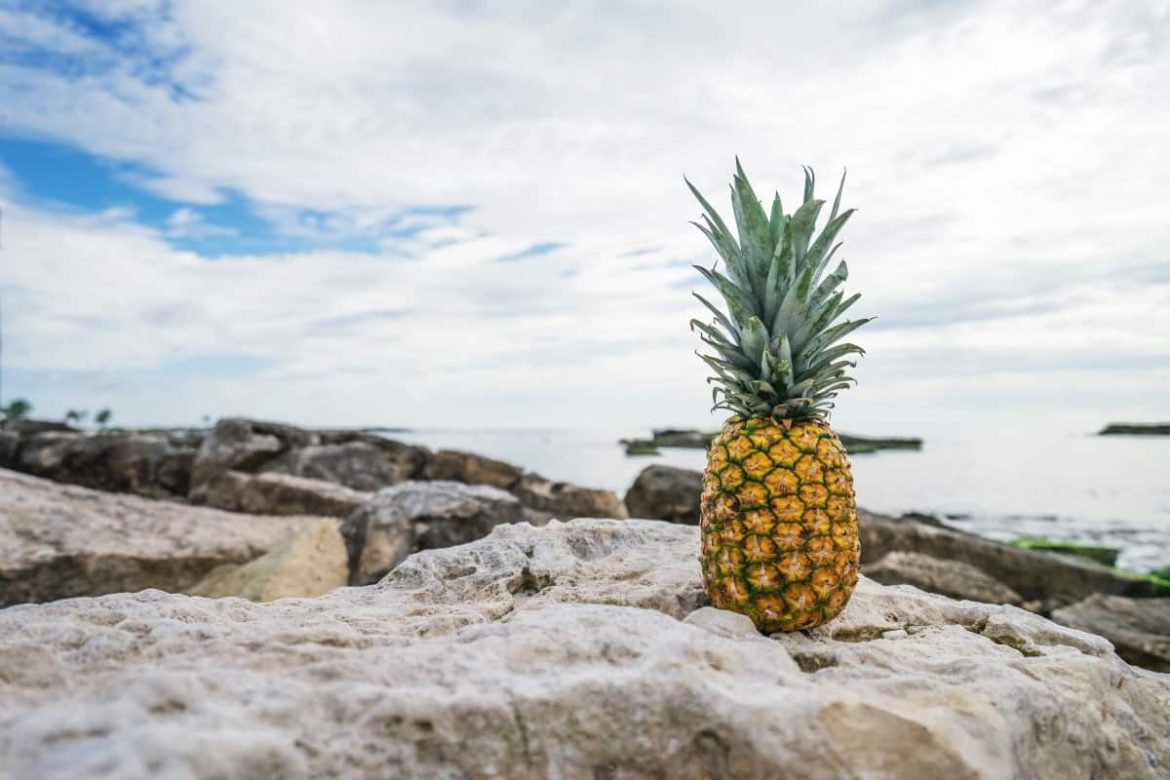
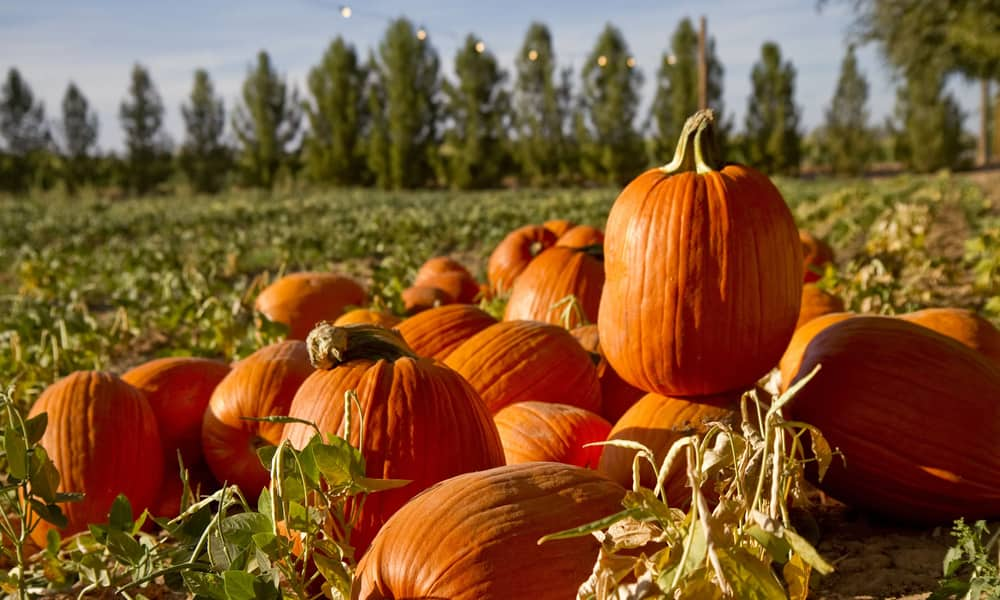
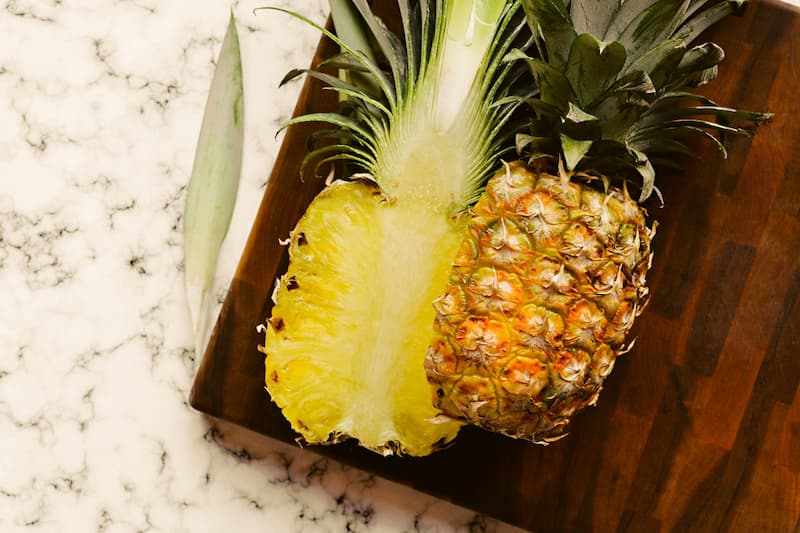
Your comment submitted.